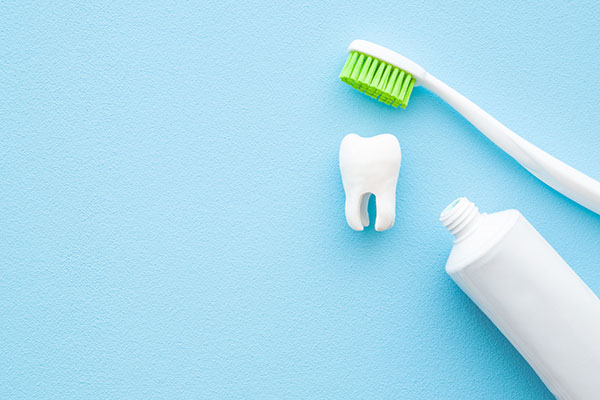 One essential step a person can take to prevent receding gums is to maintain excellent dental hygiene. Most individuals often neglect their gums and focus on dazzling, pearly white teeth when it comes to oral health. However, having healthy gums is just as important as having healthy teeth.
One essential step a person can take to prevent receding gums is to maintain excellent dental hygiene. Most individuals often neglect their gums and focus on dazzling, pearly white teeth when it comes to oral health. However, having healthy gums is just as important as having healthy teeth.
Important hygiene habits for healthy gums
Gum recession has the potential to cause tooth loss. Fortunately, many measures may be taken to prevent the condition. The following oral hygiene habits are essential for healthy teeth and gums, thus preventing gum recession:
Brush properly
Brushing teeth twice a day with a soft-bristle toothbrush is important. It is important not only to brush but to do it correctly. Dental professionals recommend brushing gently with short strokes and at a 45-degree angle. It is also advisable to select a toothpaste containing fluoride and the American Dental Association approval seal.
After brushing their teeth, many individuals rinse their mouths with water. Good oral hygiene habits, on the other hand, are augmented by fluoride products like toothpaste. This means the fluoride is washed away once a person rinses their mouth with water after brushing.
Floss daily
Many individuals overlook flossing regularly, yet it is an essential component of dental hygiene. Flossing eliminates food debris and plaque from between the teeth and gums. If they are not cleaned off, they harden into tartar, a hard deposit of bacteria that only a dentist can remove. Tartar remains a significant cause of receding gums.
Rinse the mouth
Sometimes, brushing the teeth after eating is not feasible. In this case, the better alternative is to rinse the mouth with water. Doing this removes the plaque and food debris that may be lingering in the mouth.
Use mouthwash
The American Dental Association (ADA) distinguishes between medicinal and cosmetic mouthwash. Therapeutic mouthwash helps with gum disease prevention, decreasing the rate of tartar accumulation and eliminating food debris from the mouth. Mouthwash, on the other hand, should not be used as a substitute for brushing and flossing.
Visit the dentist regularly for a checkup
A professional mouth cleaning is usually included in dental exams. Tartar may only be removed from the teeth with the help of professional cleaning. A professional cleaning may also help remove plaque that tends to lurk in oral crevices and is hard to reach by toothbrushes. During such appointments, a dentist can also detect the early symptoms of receding gum disease, an inflammatory gum condition. Early diagnosis usually ensures the prevention of more severe issues.
Quit smoking
According to the Center for Disease Control and Prevention (CDC), smoking inhibits the immune system, making a person more vulnerable to gum disease. The chemicals in tobacco are detrimental to the gums and can cause a gradual recession. To lower the risk of gum disease, dental professionals recommend stopping smoking right away.
In conclusion
Good oral hygiene habits can help prevent receding gums. The objective is to be intentional about oral care and safeguard the teeth and gums against harmful elements. To learn more about oral care habits to adopt, talk to a dental professional today.
Request an appointment or call Cumming's Family Dentist at 770-280-8723 for an appointment in our Cumming office.
Related Posts
Receding gums can affect your confidence and leave you feeling self-conscious, even when you have every reason to smile. Luckily, a dentist can correct gum recession and its root cause. They can craft treatment plans that best suit their patients’ needs. A treatment plan will include one or more procedures to restore the looks and…
Concerned about gum recession? Read on to learn the commonality of receding gums and how they can be treated and prevented. Receding gums are common among individuals with periodontal disease. However, there are different levels of gum recession, and the severity of the concerns depends on how far the gums have receded.Receding gums can become…
Receding gums are usually a scary and painful condition. It helps to be aware of the symptoms of gum recession as well as how to avoid them. Various issues may cause gum recession, but individuals who smoke or use tobacco regularly are more prone to it. Continue reading to learn more about why this is…
